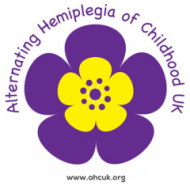We would love to hear from you!
The AHC and ATP1A3 Natural History Study
Alternating Hemiplegia of Childhood (AHC) is an ultra-rare disease with an estimated one in a million occurrence. Patients suffer from a combination of disabling paroxysmal events (hemiplegic or dystonic attacks and, in some cases, epileptic seizures) and varying degrees of permanent neurologic features (ataxia, dystonia, neurocognitive delay, mental health problems). It is a disabling condition that impacts severely the quality of life of the affected individual and their families. About 75% of the patients have a mutation in the gene ATP1A3, in the others the cause of AHC is mostly unknown.
Curative therapies are not as yet available and the medications used to alleviate symptoms like hemiplegia, dystonia, and seizures are helpful for some, but not all patients. As long-term follow-up studies are lacking, clinicians cannot provide families with an accurate prognosis. Driven by our inability to substantially help our growing cohort of afflicted patients, and with the support of AHCUK, the UK support group, we have set up the AHC and ATP1A3 natural history study led by Professor Helen Cross and Dr Katerina Vezyroglou at Great Ormond Street Hospital in London.
The study aims to answer some of the unanswered questions about AHC, such as Why are different patients affected differently? Can MRI and EEG help us predict the severity of the disease? What causes AHC in patients without a ATP1A3 mutation?
All patients (children and adults) with AHC or/and with a mutation in ATP1A3 are welcome to participate.
If you have questions or are interested to find out more, please get in touch at k.vezyroglou@ucl.ac.uk
While viewing the pdf attached below of the infographic – We recommend zoom in to get a better look at the document. Thank you
